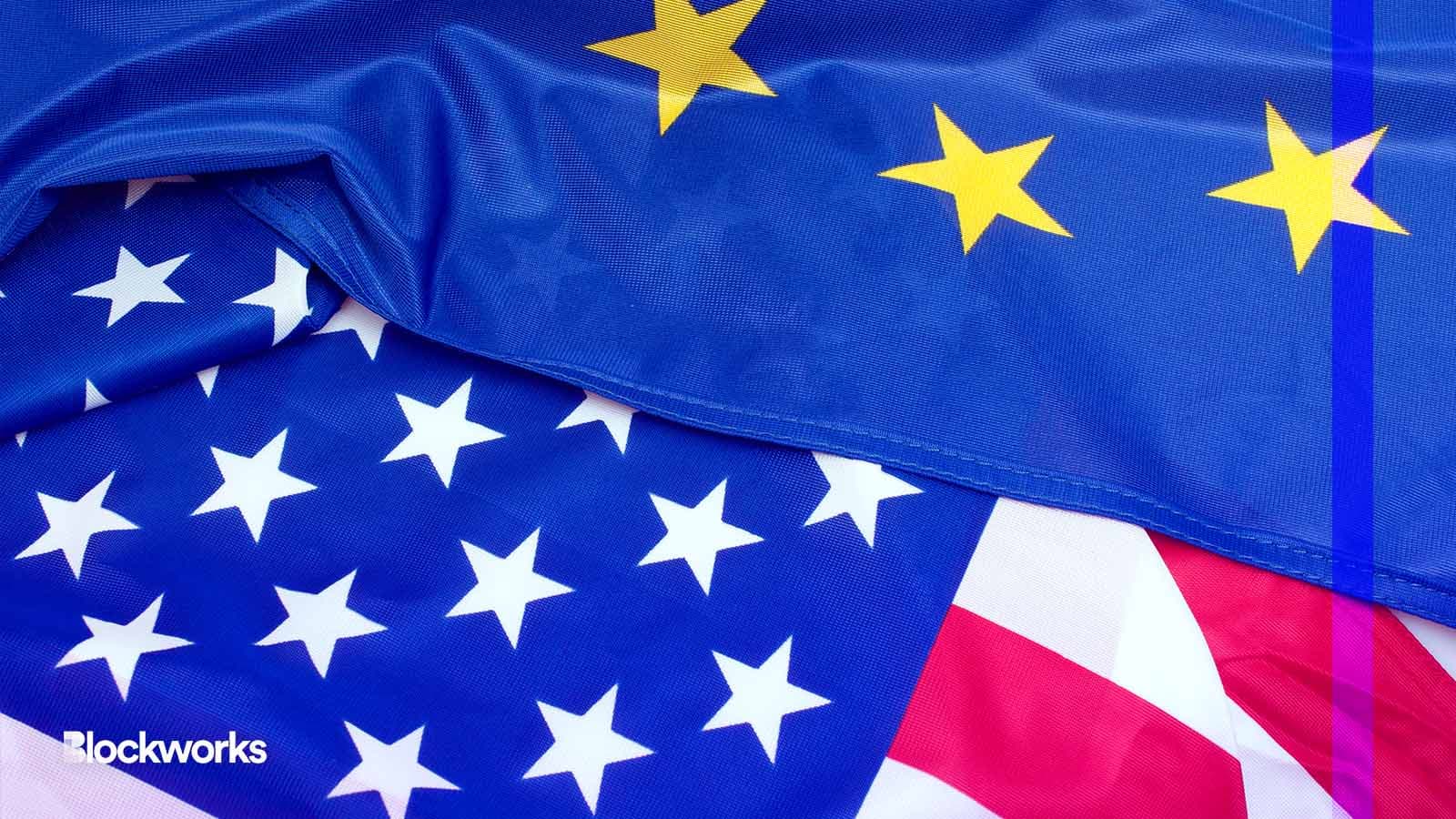A Tale of 2 Continents: Contrasting Legal Approaches to Crypto Across the Globe
Contrasting frameworks might be a factor in deciding where crypto companies set up shop

JMiks/Shutterstock modified by Blockworks
It was the best of times, it was the worst of times, it was the age of carefully establishing legal clarity, it was the age of vaguely interpreting outdated laws…
It’s a tale of two continents, if you will.
Dickensian narrative aside, Europe’s forward-looking MiCA framework stands in stark contrast to America’s retrofitted enforcement approach to the crypto industry.
On a recent Empire podcast weekly roundup, co-hosts Jason Yanowitz and Santiago Roel Santos discussed Europe and America’s contrasting regulatory approaches toward the crypto industry — and how this might affect where crypto businesses decide to set up shop in the future.
In Europe, the news of the Markets in Crypto Assets (MiCA) legal framework appears likely to spur banks to serve crypto businesses that they otherwise might have avoided, thanks to the improvements in security and transparency that the law aims to offer.
Across the pond, in the midst of what might be considered the SEC’s “reign of terror” against crypto, commission Chair Gary Gensler experienced a grilling at the hands of Congress in an effort to seek greater legal clarity on the subject. That clarity is yet to be found.
Clamping down and squeezing out
But Yanowitz says that, following the hearing, one thing is now “abundantly clear”:
“The SEC under Gensler intends to clamp down — maybe even shut down most crypto-related business in the United States — and this includes exchanges, on and off ramps,” and anything else crypto-related, he says.
Santos points out that American-based crypto companies are already looking elsewhere as regulation by enforcement squeezes them out. Coinbase — the largest American crypto exchange by trading volume — is one example, with its recent acquisition of a license to operate in Bermuda. CEO Brian Armstrong also recently mentioned the — admittedly remote — possibility of the company moving its operations to the UK.
Coinbase lauded Europe’s MiCA framework as providing “sensible regulatory clarity,” and noted the UK’s announced plans for regulating crypto asset providers was a positive step forward.
During the aforementioned Gensler interrogation, Yanowitz says, Republican Tom Emmer criticized the “impossibly high cost of compliance” that the SEC has purportedly imposed on the crypto industry.
The majority whip of the House of Representatives hammered Gensler for his favorable approach to the notorious FTX exchange, the lack of new rules for crypto combined with “55 enforcement actions,” and the SEC chair’s “rogue actions outside of Congressional authority.”
Why did you let me buy COIN stock?
Yanowitz calls out the SEC’s inconsistencies with its approval of Coinbase as a public offering in 2021 and the subsequent reversal of course years later. “That has implications, not just for Coinbase, but for investors in the public markets.”
“Why did they let me buy COIN stock, for example?”
Santos points out that the policy-flip appears to fly in the face of the SEC’s claimed mission, which is “protecting investors, maintaining fair, orderly, and efficient markets, and facilitating capital formation.”
“It’s pretty remarkable that the political objectives of the chair of one of these three-letter agencies can start to just put companies out of business,” Yanowitz remarks.
Santos adds, “Historically, what makes the US great is that it’s a system that works. It’s predictable. It has a rule of law that has multiple checks and balances, and by and large, that gives investors…a greater sense of security.”
“If that all of a sudden gets put in question, then you’re gonna go elsewhere, like the European Union or the UK.”
“That’s why this MiCA bill… is important,” Yanowitz responds, “they’re pushing through really clear guidelines that say, ‘if you’re building a crypto company, this is how you have to operate’” — very different from the SEC’s seemingly unpredictable regulation-through-enforcement strategy.
Those clear guidelines can spur innovation and growth, but as Dickens once wrote, “oppression can beget nothing other than itself.”
Get the news in your inbox. Explore Blockworks newsletters:
- The Breakdown: Decoding crypto and the markets. Daily.
- 0xResearch: Alpha in your inbox. Think like an analyst.






